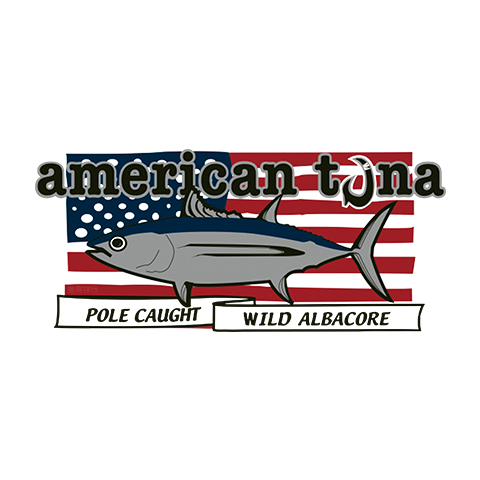推荐产品:Albacore Wild Tuna-5oz、Albacore Wild Tuna Family Size-7.5oz、Albacore Wild Tuna No Salt Added -5oz、Skipjack Wild Tuna-5oz、Skipjack Wild Tuna Family Size-7.5oz、Skipjack Wild Tuna No Salt Added-5oz、Albacore Solid Wild Tuna In Extra Virgin Olive Oil-5oz
There is a global consensus to protect the sustainable development of marine fisheries, and the tuna industry has been under the close attention of environmental NGOs. Wild Planet is a benchmark for sustainable business in the canning tuna industry, and the canning company has made ecological protection the most important part of its existence. In the sustainability assessment of the world's canned tuna brands conducted by the internationally renowned environmental organization "Greenpeace", Wild Plant was ranked first on the recommendation list for its good ingredient sourcing policy.
Wild Planet's canned tuna is divided into two types: Albacore and Skipjack, and their albacore tuna is mainly sourced from rod and line fishing fleets on the east and west coasts of the North Pacific, and some tuna is sourced from large trolling vessels operating in New Zealand waters. Bonito is sourced from small fishing boats in Japan, Indonesia or the Maldives and caught using only rod and rod fishing. Pole and trolling are considered sustainable practices by many environmental NGOs and are less ecologically damaging than industrial fishing methods such as purse seine fishing, trawling or longline fishing with the help of FADs (fish aggregation devices) and have minimal impact on the biomass of juvenile fish and other non-target species.
Tuna caught by rod and trolling are almost exclusively young migratory tuna, and also contain less mercury than tuna caught in deeper waters by industrial fishing methods such as longline. Wild Planet's mercury tests on its canned albacore tuna showed an average mercury content of 0.076 ppm for its bonito products and 0.17 ppm for its albacore tuna products, which is only 1/6 of the FDA's safe threshold of 1.0 ppm for mercury in fish. Although individual differences in tuna may lead to fluctuations in actual values, in theory, Wild Planet albacore tuna is only half as rich in mercury as other brands of albacore tuna products, allowing consumers to consume canned tuna more frequently.
For the processing of the raw materials, Wild Planet has chosen the most primitive and pure solution, the cut tuna meat is canned with its own juice and cooked only once in the tank, and each can of tuna is seasoned with only sea salt, and even no drinking water is added to achieve the original taste without reservation. This also helps to retain as much of the omega-3 fatty acids as possible in the fish, which are beneficial to the human body.
Wild Planet's regular albacore tuna has a bright white and slightly brown exterior and a pink interior that means it has not been processed with a color protectant; The meat is firm, has a distinct tuna flavor, and is moderately salty. The less expensive canned bonito is slightly more fishy and has a strong flavor. Although no water is added during the canning process, the actual opening of the can will find that the content of its juice is not low, and the manufacturer recommends that consumers do not abandon the juice in the can when eating. Wild Planet also offers the option of albacore tuna in oil, which is less intense and smoother, while extra virgin olive oil from Spain adds a dose of heart-healthy monounsaturated fatty acids to the can.
Wild Planet's albacore tuna and bonito are available in 5 ounces, 7.5 ounces, unsalted 5 ounces, 3 ounces, and unsalted 3 ounces, and albacore tuna is available in 5 ounces in olive oil, 4.5 ounces in fish loin and 4.5 ounces in olive oil. The price of a regular 5-ounce bottle of ordinary albacore tuna is about 34 yuan per can, and the price of a 5-ounce canned bonito is about 27 yuan per can. Tuna loin has a softer texture and sweeter flavor, but the price is relatively high, at nearly 50 yuan per 4.5-ounce can.
- Related rankings
-
- melon seeds
- biscuit
- candy
- Chocolate confectionery
- Wafer biscuits
- Toughness cookies
- dark chocolate
- potato chip
- Spicy strips
- Ham sausage
- Zongzi
- Mooncakes
- Sandwich biscuits
- egg roll
- can
- Wrap stinky tofu
- Crispy biscuits
- Jelly pudding
- Soda crackers
- Nut snacks
- Shaqima
- instant noodle
- pistachio
- chewing gum
- Ice cream ice cream
- Eight treasure porridge
- Ready-to-eat seaweed
- Canned dace
- Canned luncheon meat
- Canned delicatessen
- Canned abalone
- Canned fruit












